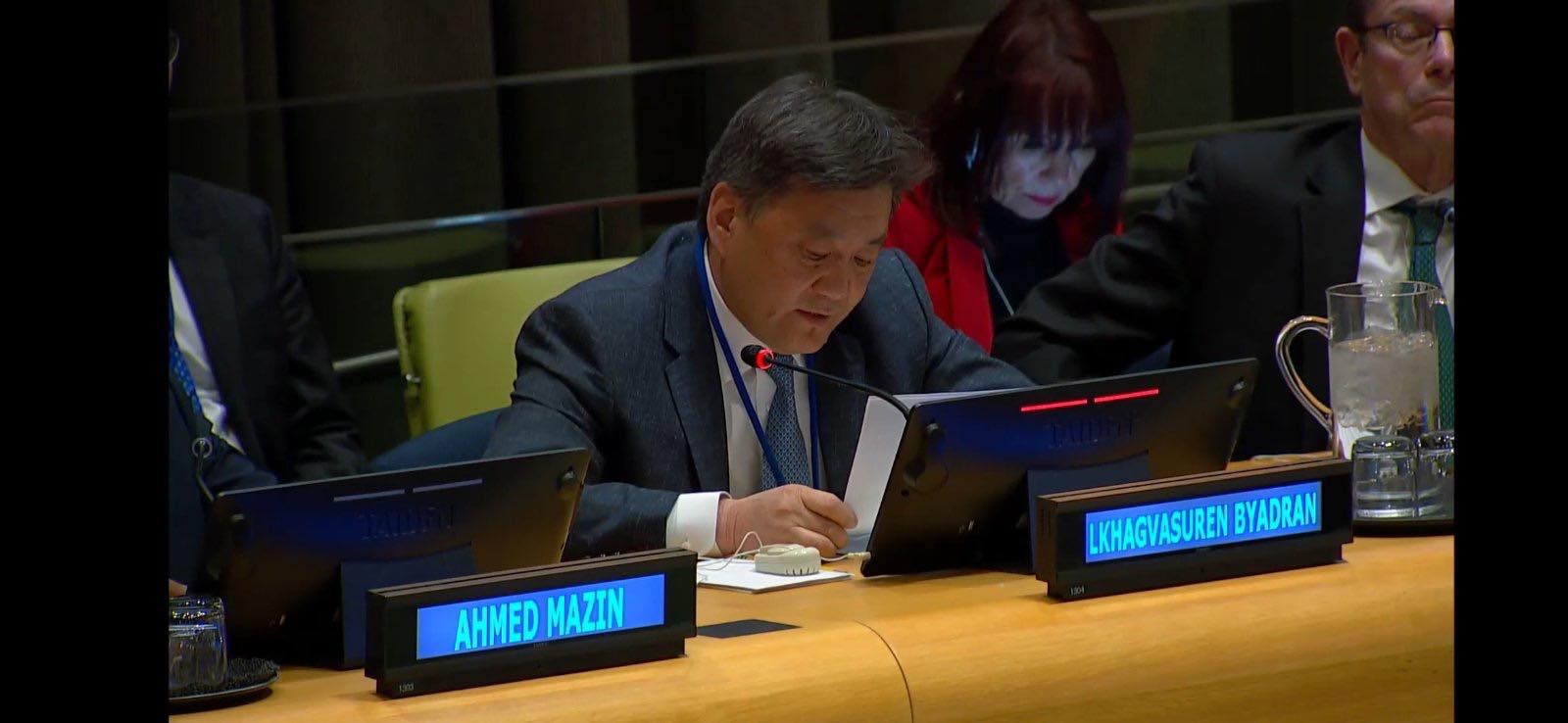The speech of the Governor of the Bank of Mongolia, Mr. B.Lkhagvasuren, at the "Development Financing Forum"

The speech of the Governor of the Bank of Mongolia, Mr. B.Lkhagvasuren, at the "Development Financing Forum" aimed at solving systemic problems in the international financial safety net, held in New York, USA.
Wednesday, April 24
Good afternoon, distinguished guests, esteemed colleagues, and fellow panelists.
It is my honor to join this important policy dialogue on addressing systemic issues in the global financial safety net and to share our visions and prospects.
Over the past 4 years, we have witnessed numerous challenges and its consequences in the global economy. These events have once again highlighted the critical importance and need for an inclusive global financial safety net, particularly during periods of unprecedented economic uncertainty.
Today, I would like to share Mongolia’s recent experience as a small, open, and landlocked economy in Eastern Asia as a representative of the 54 lower-middle-income economies in the world.
In 2020, our economy contracted by 4.6 percent due to pandemic-related lockdowns, while inflation fueled by supply-chain disruptions surged to 17 percent in 2022.
Geopolitical tensions further complicated matters, by creating difficulties in the settlement of essential imports payment. Policy rate hikes in advanced economies also had adverse effects on our domestic financial sector, leading to heightened volatility in exchange rates and increased external borrowing costs.
Altogether, uncertainties in the financial sector magnified the effects of external shocks on the economy.
As the main source of safety net against external shock, the gross international reserves were almost halved in size by August 2022, despite the foreign exchange intervention being limited to payments of essential imports only.
Through a series of multilateral, bilateral, and domestic policy measures, Mongolia’s economy has been gradually rebounding from the pandemic-induced slowdown and has grown by 7 percent in 2023. Capitalizing on this momentum, we have been building up our gross international reserves, and by the end of 2023 reserves reached a record high, creating a buffer against external shocks.
However, Mongolia’s economic outlook depends on further developments in the external sector and local weather conditions. Given that, further multilateral cooperation is crucial for the economy’s recovery and development.
Having said that, I would like to highlight three issues related to us that may suggest strengthening the global financial safety net.
The first step is to create a framework for multilateral currency swap lines that is inclusive of developing economies.
Central bank swap lines have proven to be the most effective tools for crisis management over the years. They not only provide urgent liquidity to the market at a relatively low cost but also help to soothe market fears amid heightened volatility. Yet, most of the swap lines established are between the developed economies, leaving uneven access to the “low to middle” income countries.
On the bilateral level, the Bank of Mongolia has a bilateral currency swap arrangement signed with the People’s Bank of China.
However, a wide-ranging multilateral cooperation and initiative in this area is still lagging at the global level and I believe that establishing a comprehensive framework, inclusive of smaller countries like ours would benefit economies by promoting liquidity in the market and by enhancing the facilitation of global trade.
The second. The practical role of the "global financial safety net" should be reassessed to include vulnerability considerations such as climate-related factors in multilateral financing calculations.
Typically, economies more vulnerable to external shocks are those needing resources. However, common practice is that the Special drawing rights (SDR) allocations and other multilateral financing formulas often rely primarily on income levels and assessments of the recipient country’s policy quality and institutional frameworks. This approach results in uneven and restricted access to the global financial safety net for “low-to-middle” income countries.
Therefore, adding vulnerability measures to the financing formula could better address the needs of truly at-risk economies. Additionally, agreeing on the triggers of such measures would make the process clear, transparent, and timely.
The third is to strengthen the financial safety net within the domestic financial sector at the national level, ensuring it is adaptable to the evolving global financial environment.
As for Mongolia, we have been continuously implementing measures to strengthen the resilience and governance of the banking sector, which makes up nearly 90 percent of the financial sector assets.
First, we ensure the safety and soundness of banks through our strong supervisory framework in line with generally accepted standards by the Basel Committee for Banking Supervision. We are now in the process of gradually introducing Pillar 2 of the Basel Framework aiming to enhance banks’ risk management and governance framework.
Also, we recently completed our three-year banking sector reform program to promote transparency and accountability, in which we have opened Mongolia’s banking sector to foreign investors with numerous options, to not only attract foreign funding but also to improve our financial sector’s overall governance through active participation by institutional investors.
This marks the end of my speech. Once again, I extend my sincere gratitude to the organizers of this event and all those in attendance for their invaluable contributions.
Thank you.
